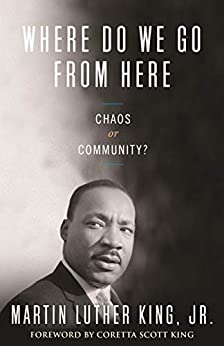223 pages
English language
Published Nov. 8, 2010 by Beacon Press.

223 pages
English language
Published Nov. 8, 2010 by Beacon Press.
King believed that the next phase in the movement would bring its own challenges, as African Americans continued to make demands for better jobs, higher wages, decent housing, an education equal to that of whites, and a guarantee that the rights won in the Civil Rights Act of 1964 and the Voting Rights Act of 1965 would be enforced by the federal government. He warned that ‘‘The persistence of racism in depth and the dawning awareness that Negro demands will necessitate structural changes in society have generated a new phase of white resistance in North and South.’’
King assesses the rise of black nationalism and the increasing use of the slogan ‘‘Black Power’’ in the movement. While he praised the slogan, he also recognized that its implied rejection of interracial coalitions and call for retaliatory violence ‘‘prevent it from having the substance and program to become the basic strategy …
King believed that the next phase in the movement would bring its own challenges, as African Americans continued to make demands for better jobs, higher wages, decent housing, an education equal to that of whites, and a guarantee that the rights won in the Civil Rights Act of 1964 and the Voting Rights Act of 1965 would be enforced by the federal government. He warned that ‘‘The persistence of racism in depth and the dawning awareness that Negro demands will necessitate structural changes in society have generated a new phase of white resistance in North and South.’’
King assesses the rise of black nationalism and the increasing use of the slogan ‘‘Black Power’’ in the movement. While he praised the slogan, he also recognized that its implied rejection of interracial coalitions and call for retaliatory violence ‘‘prevent it from having the substance and program to become the basic strategy for the civil rights movement in the days ahead.’’ Condemning the advocacy of black separatism, King maintained that there would be no genuine progress for African Americans ‘‘unless the whole of American society takes a new turn toward greater economic justice.’’ Despite King’s impatience with Black Power proponents, he ends the book on an optimistic note, calling for continued faith in the movement.